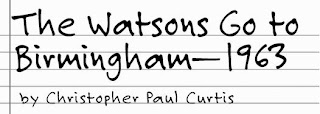



NCTE 2010
Orlando (11/18-11/21)
Thursday, November 18th
- Check-in at Disney Caribbean Beach Resort. Take shuttle to Disney Coronado Springs for Convention.
- Universal Studios after 2pm
- Harry Potter movie marathon 6pm-3am
Friday, November 19th
9:30am-10:45am
A. 06: Building Teacher Communities Through Social Networking (pg. 55)
11:00am-12:15pm
B. 25: Author Strand: Brandon Mull and Neal Shusterman (pg. 74)
B. 52: A Look in the Rearview Mirror: What Did and Didn’t Work in a Pre-Service English Education Program (pg. 80)
12:00pm-6pm (ongoing)
Coronado/Veracruz Exhibition Hall
12:30pm-1:45pm
C. 22: Putting Art into Language Arts
4:00pm-5:15pm
E. 34: Beyond Graphic Novelty: Transforming the Hype into Powerful Practice

